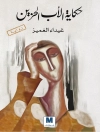This collection of essays examines how diverse religions of the world represent, understand, theologize, theorize and respond to disability and chronic illness. Contributors employ a variety of methodological approaches including ethnography, historical, cultural, or textual analysis, personal narrative, and theological/philosophical investigation.
Spis treści
PART I: RELIGION, NARRATIVE IDENTITY AND DISABILITY Performance of Muslim Daily Prayer by Physically Disabled Practitioners; A.Dokumaci Since Feathers Have Grown on My Body: Madness, Art, and Healing in Celtic Reconstructionist Spirituality; E.R.Laurie Whatever the Sacrifice: Illness and Authority in the Baha’i Faith; P.Gilman Stations of Victoria & Rosalina’s Broken Bread; A.B.Valeras PART II: RELIGION, ACCESSIBILITY AND DISABILITY Disabled Rites: Ritual and Disability in Wicca; J.Pearson A Secular Case for Religious Inclusion of Individuals with Intellectual Disabilities; J.Mc Nair & A.Schindler Health and Disability Care in Native American & Alaska Native Communities; L.L.Lovern PART III: INTER-RELIGIOUS AND CROSS-CULTURAL COMPARISONS OF DISABILITY Native American Concepts Involving Human Differences; L.L.Lovern Chronic Illness and Disability: Paradigms of Suffering and Healing in Buddhism and Christianity; M.Stoltzfus & D.Schumm Disability, Agency and Engagement: Three Wisdom Traditions Call to be Radically Available; L.Bejoian , M.Quinn & M.Bazna Best Practices for Faith-Based Organizations Working With Deaf Communities in Developing Countries; A.Wilson & K.Van Gilder
O autorze
Author Darla Schumm: Darla Schumm is an Associate Professor of Religious Studies, Hollins University Author Michael J. Stoltzfus: Michael J. Stoltzfus is a Professor of Philosophy and Religious Studies in the Department of Philosophy and Religious Studies at Valdosta State University












